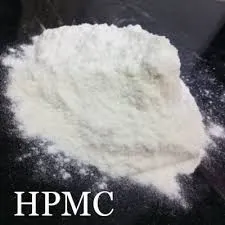
តុលា . 03, 2024 17:16 Back to list
hydroxyéthyl cellulose
Hydroxyethyl Cellulose A Versatile Polymer for Modern Applications
Hydroxyethyl cellulose (HEC) is a non-ionic, water-soluble polymer derived from cellulose, one of the most abundant natural polymers on Earth. It has gained significant attention over the years due to its unique properties and versatility, making it a valuable ingredient in a wide array of industries, including pharmaceuticals, cosmetics, food, and construction.
Hydroxyethyl Cellulose A Versatile Polymer for Modern Applications
One of the most prominent features of hydroxyethyl cellulose is its ability to serve as a thickening agent. In the cosmetic and personal care industry, it is commonly used in products such as shampoos, conditioners, lotions, and gels. HEC improves the texture and consistency of these formulations, ensuring a smooth application while enhancing the sensory experience of the end user. Furthermore, its stabilizing properties help in preventing the separation of oil and water phases, thereby prolonging the shelf life of cosmetic products.
hydroxyéthyl cellulose

In pharmaceuticals, HEC plays a crucial role in drug formulation. Its thickening and binding properties are invaluable in creating gels and ointments that are easy to spread and adhere to the skin. Additionally, HEC can improve the bioavailability of certain medications, making them more effective. The controlled-release properties of HEC also make it an ideal candidate for encapsulating drugs, allowing for a gradual release of active ingredients over time.
The food industry benefits from the use of hydroxyethyl cellulose as well. It acts as a food additive that enhances the texture and consistency of various products, including sauces, dressings, and baked goods. HEC can also be used as a fat replacer, allowing for reduced calorie content while maintaining desirable mouthfeel and viscosity. Its ability to form gels makes it suitable for gluten-free formulations, providing structure and stability to products that otherwise would lack the elasticity typical of wheat-based goods.
In the construction sector, HEC is utilized as a thickener for cement-based materials such as tile adhesives, grouts, and mortars. Its water-retaining properties enhance the workability and adhesion of these materials, leading to improved application and durability. The addition of HEC helps to reduce cracking and shrinkage, ensuring that construction projects maintain high-quality standards.
In conclusion, hydroxyethyl cellulose is a multifaceted polymer with a broad spectrum of applications across various industries, thanks to its unique properties. As research continues to unlock further potentials and innovations in the utilization of HEC, its presence in everyday products will likely continue to grow, enhancing functionality and improving consumer experiences in countless ways.
-
Versatile Hpmc Uses in Different Industries
NewsJun.19,2025
-
Redispersible Powder's Role in Enhancing Durability of Construction Products
NewsJun.19,2025
-
Hydroxyethyl Cellulose Applications Driving Green Industrial Processes
NewsJun.19,2025
-
Exploring Different Redispersible Polymer Powder
NewsJun.19,2025
-
Choosing the Right Mortar Bonding Agent
NewsJun.19,2025
-
Applications and Significance of China Hpmc in Modern Industries
NewsJun.19,2025







